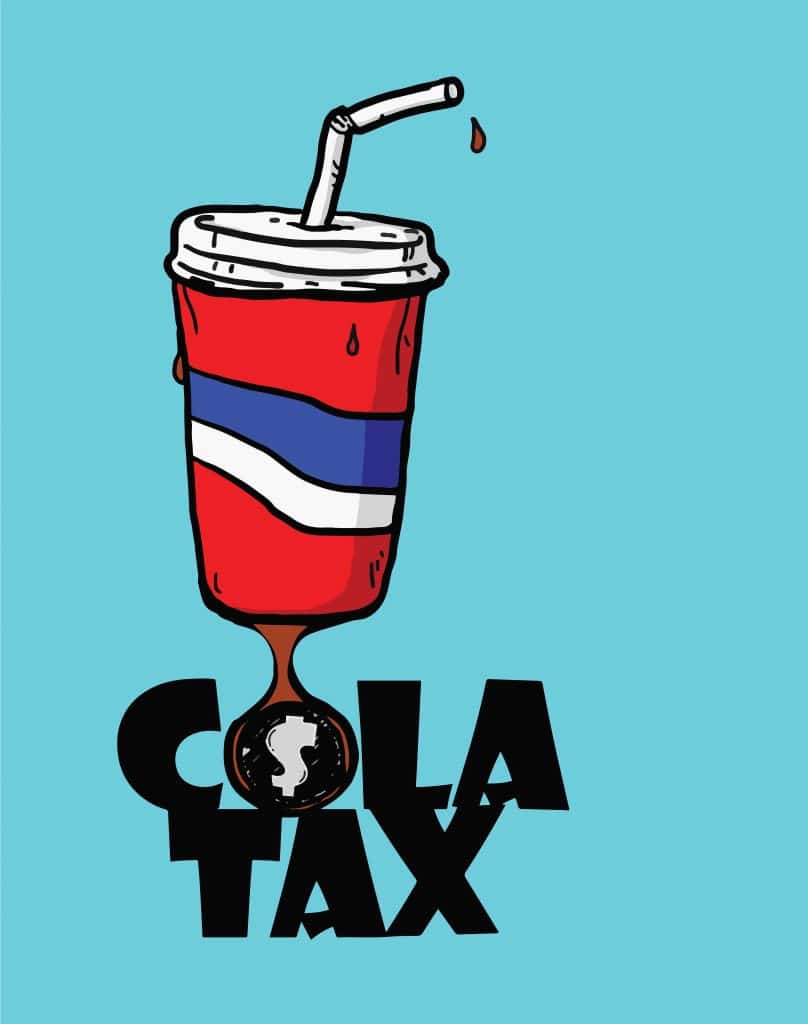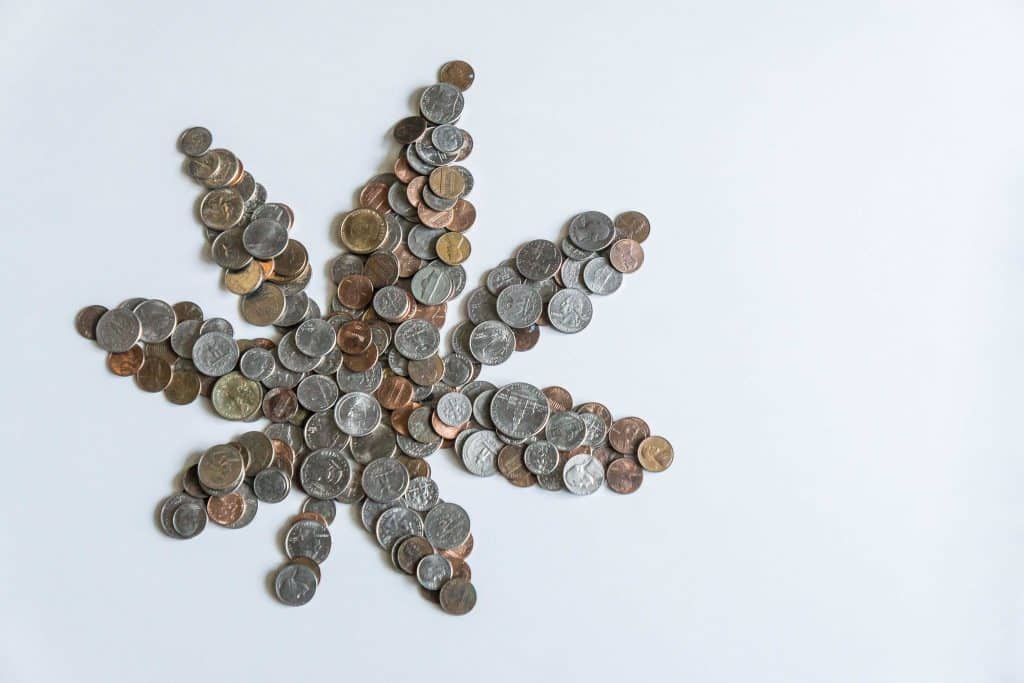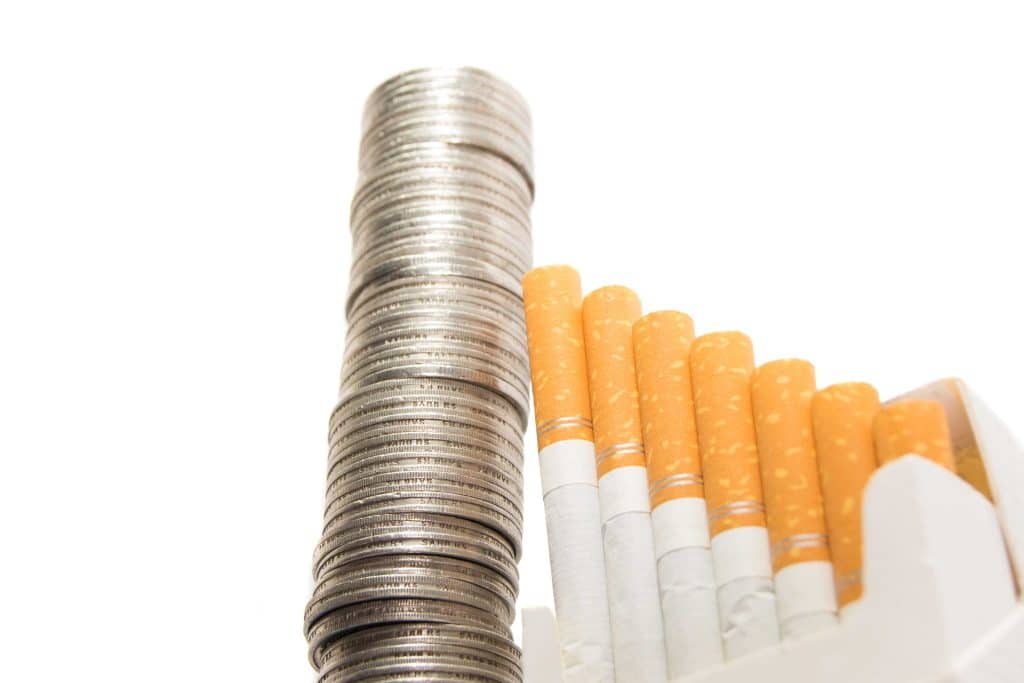We’re all familiar with paying taxes. In some countries, all tax amount is embedded within the price. In America, nearly every state advertises products at one price (with already embedded taxes), and then adds on a sales tax which increases the price. You’ll probably notice that for some products, the embedded tax amount is huge, sometimes to the point of ridiculous. This happens mostly on products deemed worthy of a sin tax. So, what are sin taxes, and how do they affect the cannabis industry?
Sin taxes are one of the biggest detriments to the legal cannabis industry since they create very high prices. We’re an independent news site bringing you the best from the burgeoning worlds of cannabis and psychedelics. Sign up for the Cannadelics Weekly Newsletter to access updates to your email, and for a range of deals on all types of stuff, like vapes and other smoking devices, edibles, an array of cannabis paraphernalia, and cannabinoid products like the the highly-in-demand Delta 8 & HHC. We’ve got all the info in our ‘best of’ lists, so stroll on over, and find the products that work best for you.
The sin tax – yup, we’re all sinners
There are different taxes put on goods in the process of getting something from raw materials, to a sold product. Some are taxes between producers and suppliers, some are taxes for cultivation (if it applies), some are added to the item as a sales tax. Taxes like excise taxes, which aren’t directly put on the buyer, are embedded in the final price, the way most countries outside the US embed the sales tax within.
Not every industry is taxed the same way. Though a sales tax almost always applies (although this does vary by state), each industry has its own set of taxes. That’s why for some goods, the tax amount is a small percentage of the final price, while for other products, it’s a pretty weighty chunk of it.
This is where sin taxes come in. Generally, when you see a price that far exceeds what a product should realistically cost, it’s probably a sin tax. Sin taxes are taxes that are levied on products like cigarettes, cannabis, or alcohol, which are deemed dangerous by the government. They take the form of an excise tax, so the amount doesn’t show up to the buyer on their receipt at the time of purchase. It’s embedded into the price of the product.

Products, services, and past times that carry a sin tax, include: alcohol, tobacco (specifically nicotine), drugs (like cannabis), candy, soda, fast food, coffee, sugar, gambling, and pornography. The stated point of sin taxes, is to deter people from obtaining the products or services, by making them pay more for them. If they can’t lower demand, the other stated goal of a sin tax is to simply bring in revenue, which they certainly do.
The effect of sin taxes
For some products that are low-priced, and not subject to as large sin taxes – like coffee, or soda – the burden of the price isn’t felt. For other goods, where a very large tax is levied, the extra taxation is quite noticeable. Cigarettes are the best example here, and cannabis as well; as both industries are written about for having exorbitant taxes. More so than fast food, coffee, or even alcohol.
These taxes have been shown to disproportionately affect the population, putting an extra burden on the poor, while not really imposing anything difficult or hurtful on the rich. This is called a regressive tax, as it discriminates against those with less money. These taxes are associated with strengthening black markets in some cases; if a price point becomes way out of range in legal markets, black market operators can capitalize on this to undercut the legal market.
It also seems the jury is out on whether they work or not. For example, that massive sin tax on cigarettes? I’ve personally never known anyone who stopped smoking, or cut down, because of the cost, even when the person in question was strapped for cash. And I know a lot of smokers.
I do know plenty of people who cut down because of the health issues. It could erroneously be viewed as a reaction to higher pricing that sales go down, when in actuality – especially for something like smoking which kills 480,000+ people every year in the US alone – the reduction is likely from other factors. For lower priced goods like coffee, no difference is seen. And since these taxes can drive black markets, it stands to reason that the taxes aren’t changing consumption behavior, just changing where a person gets their product.
It’s not shocking that sin taxes are generally written about as having a positive impact on reducing negative consumer behavior. Think about how much money they bring in for governments. Even when on a low-priced item where the price difference is less of a burden to the buyer, it still means the government is getting way more in tax revenue, than it otherwise would. When looking at all products with sin taxes, there’s a large diversity.

Cigarettes, porn, coffee, and soda are wildly different products. Some with massive health burdens attached. Some with big and growing black markets. Regardless of what some reports say, the full picture shows there’s no difference. Cigarettes are often pointed to as being responsive to these taxes, but in reality, smoking rates went up along with taxes at certain points; and it was the understanding of the health issues that brought change in smoking numbers.
Plus, if a sin tax decreases legal market purchases, but increases black market purchases, it might look like an overall reduction in use. Cannabis is a great example here. If taxes go up on it, people are simply less likely to go to a dispensary, and more likely to hit up their black market dealer. This has no effect on actual consumption rates. However, if not looking at the black market in this situation, it could seem like the increase in price, led to people buying less. Which makes it hard to put much weight on any study that says that sin taxes decrease negative behavior, if they’re not accounting for the black market.
How do sin taxes affect the cannabis industry?
They make it friggin’ expensive. When it comes to cannabis, governments have gone wild with all kinds of taxes, down to the THC in some states. So much so that it’s spoken about as a major detriment to the industry really working out. In fact, as local governments shout about how much tax money they’ve brought in from cannabis, the industry itself is so strapped, that even a major company like Canopy Growth, is getting out of the retail market.
Just how much are states charging for their cannabis sin tax? There’s no set rule here, and amounts vary between states. It’s also not clear exactly how much is earmarked as the sin tax, as it goes into the entire excise tax value. In an April 22nd article by route-fifty.com, it was reported that according to the Institute on Taxation and Economic Policy, the excise tax amount collected from 11 legal states, totaled $2.9 billion in 2021 alone. Now, alcohol is more widely bought (we know this because its way more accessible, and sold in every state), yet it only brought in $2.4 billion across the same states.
This ~$3 billion is a 33% increase from the year before, showing not only high taxes, but a desire to keep raising them. In Colorado, $396 million came in, in 2021 from cannabis excise taxes. The same year it brought in $53 million from alcohol taxes. To give an idea of how much this helps or hurts the state, the fiscal budget for that year was in the neighborhood of $36 billion. So, helpful, yes, but still a drop in the bucket.
While some say that a federal legalization would actually lower prices, especially in states where taxes are related to price, and not quantity of sales, I’m not sure I agree. The cigarette market indicates quite the opposite. A federal legalization would certainly mean a change in what states do and how much they tax, but it would also mean adding federal taxes on. When looking at cigarettes, the only thing this has led to, is ridiculously high tax prices that make cigarettes a government industry.

If weed sin taxes follow in the footsteps of tobacco…
When we think of what an industry is, it’s a line of businesses that do the same thing to bring in money. If you buy car, you expect the car manufacturer to be the big winner in terms of revenue, because that’s how it should work. But that’s not how it works in the cigarette industry, where such extreme sin taxes are applied, that the biggest winners are now government bodies, and not the companies within the industry.
This is highlighted by a 2011 document by Philip Morris showing that 55% of the estimated retail price of a pack of cigarettes at that point, was 55% taxes. As per the World Health Organization on cigarette taxation globally, the US was 36th out of 50 countries (the most populous) in 2015, in terms of cigarette taxation. Its data showed a lower tax expectation than Philip Morris, with a 42.5% tax rate per pack of cigarettes in the US. Still, past the line of exorbitant.
If the US was 36th that year, it means many other countries have even higher tax rates. The same WHO data showed an 82.2% tax rate for cigarettes in the UK, the highest of all countries. Not far behind is Mexico, where it’s been reported that 70% of the cost of a pack of cigarettes, goes straight to government taxes.
Take a second to think about that. According to this data, the governments of the UK and Mexico take the grand majority of the money spent on a pack of cigarettes. Even if the cigarette maker gets the entire rest of the cost, it would be no more than 17.8% or 30% of the retail price. Whether you like cigarettes or not, shouldn’t the industry putting out a product, get the lion’s share of the consumer price tag? How weird is it that we’ve become okay with the government literally taking over the revenue of private industry, to the point of being the main beneficiary?
Conclusion
It’s hard to say what will happen when cannabis is legalized federally. If the same process is followed with cigarettes, then we can expect higher prices. If governments want to compete more with black markets, maybe they’ll be lowered. California, which suffered from all the issues associated with high marijuana taxes, recently lowered taxes to give legal operators a better chance. Perhaps if governments want this industry to continue above board, they’ll cool off with the sin taxes on cannabis; and maybe stop treating it like it kills almost 500,000 people a year, when in fact, it’s a no death-toll drug.
Welcome readers! Thanks for visiting us at Cannadelics.com; we work hard to bring you comprehensive coverage of the cannabis and psychedelics fields, within an independent framework. Drop by frequently for daily coverage, and subscribe to the Cannadelics Weekly Newsletter, to get all the best headlines and product offerings, direct to your email.









